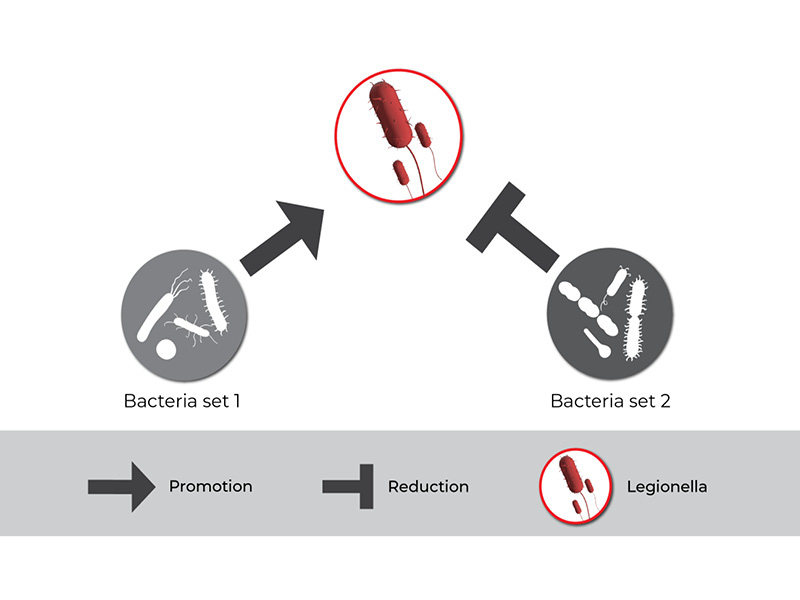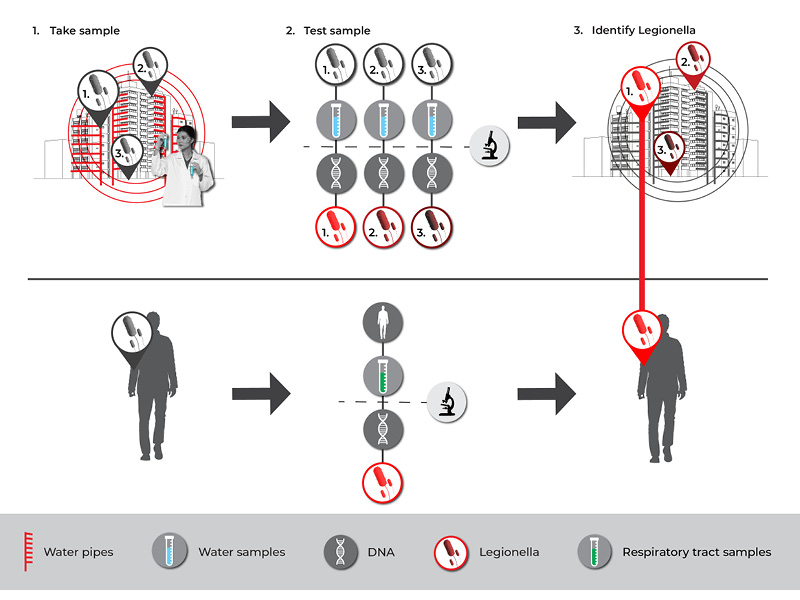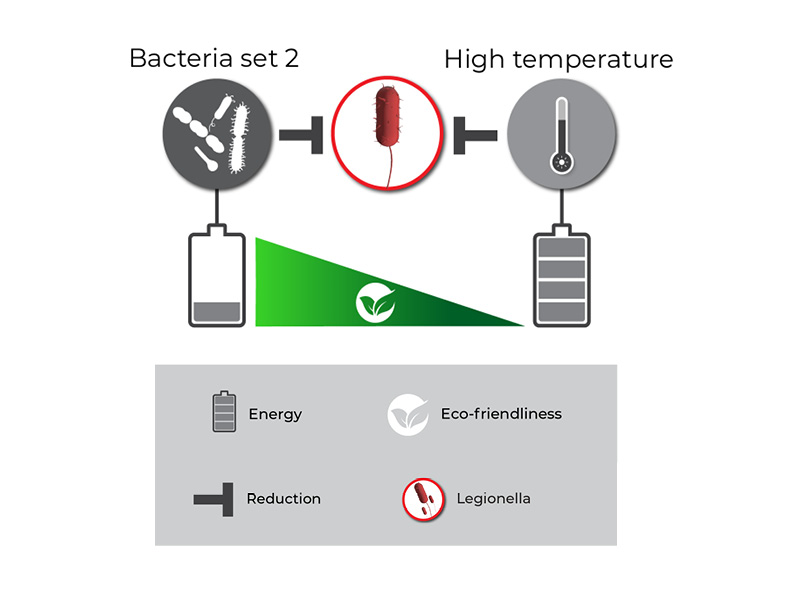Both in Switzerland and throughout the world, the last few years have seen a sharp increase in Legionnaires’ disease, which is caused by Legionella bacteria. To counteract this trend, the FSVO set up the multidisciplinary research project LeCo. The research team is developing basic principles that can be used to efficiently identify and combat Legionella in buildings.
Good to know
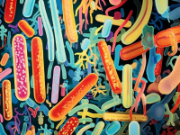
Friends and foes of legionella – a glimpse inside your shower
Legionella exist in shower hoses alongside many other microorganisms – do they promote or fight them? LeCo characterises the microbial communities of 85 shower hose biofilms and analyses their relationships with Legionella. Read more in the new blog of the LeCo research project.
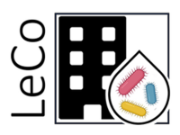
Legionella are bacteria that occur naturally in standing water. If they spread into water pipes, however, they can become a risk to human health, causing Legionnaires’ disease, a severe form of pneumonia, or the milder Pontiac fever.
To investigate the reasons behind the spread of Legionella and develop countermeasures, the FSVO – together with the Federal Office of Public Health (FOPH) and the Federal Office of Energy (SFOE) – launched the “Legionella control in buildings” (LeCo) research project.
Goals and initial successes
To control the pathogens more efficiently, researchers want to gain a better understanding of how the Legionella behave in the water pipes of large buildings. Energy-saving and biological methods of combating Legionella are also being investigated. The researchers are also seeking to improve the methods for detecting Legionella, the underlying aim being to reduce the incidence of Legionnaires’ disease in Switzerland over the long term.
The areas being researched therefore include:
- The prerequisites that need to be fulfilled to limit Legionella growth
- The use of genetic methods to investigate outbreaks more effectively
- The role of existing or additional microflora in drinking water in combating Legionella infestation
- Energy-saving measures to prevent Legionella growth
Initial successes have been achieved with the development of new specifications for sampling methods. These have been summarised and made available to system operators on the methodology platform of the Swiss Gas and Water Industry Association SGWA – web page (not available in English): Methods platform | SGWA.
Legionnaires’ disease on the increase
Legionnaires’ disease is occurring more frequently both in Switzerland and around the world. Between 500 and 700 cases have been reported to the FOPH in recent years, and numbers are rising. The disease proves fatal, despite antibiotic treatment, in five to ten percent of cases. Thus in 2017 the FSVO set limit values for Legionella in shower and bathing water. These limits are set forth in Swiss foodstuffs legislation.
Creating a scientific basis
The federal authorities hope that results from the LeCo research projects will provide building technology specialists, plumbers and building owners and cantonal food standards enforcement agencies with a broader scientific basis with which to underpin the hygiene requirements for water in sanitation systems.
A multidisciplinary research project
Four Swiss research groups specialising in drinking water microbiology, disease agents and human health have been working on the LeCo research project since the start of 2020. These are:
Eawag, Portrait of Eawag
Swiss Tropical and Public Health Institute, Swiss TPH | Making the world a healthier place
Building Technology and Energy (Lucerne University of Applied Sciences and Arts), Lucerne University of Applied Sciences and Arts
Legionella unit (Cantonal Laboratory Zurich), Cantonal Laboratory | Canton of Zurich (zh.ch), (German only)
More information
Last modification 23.07.2024


